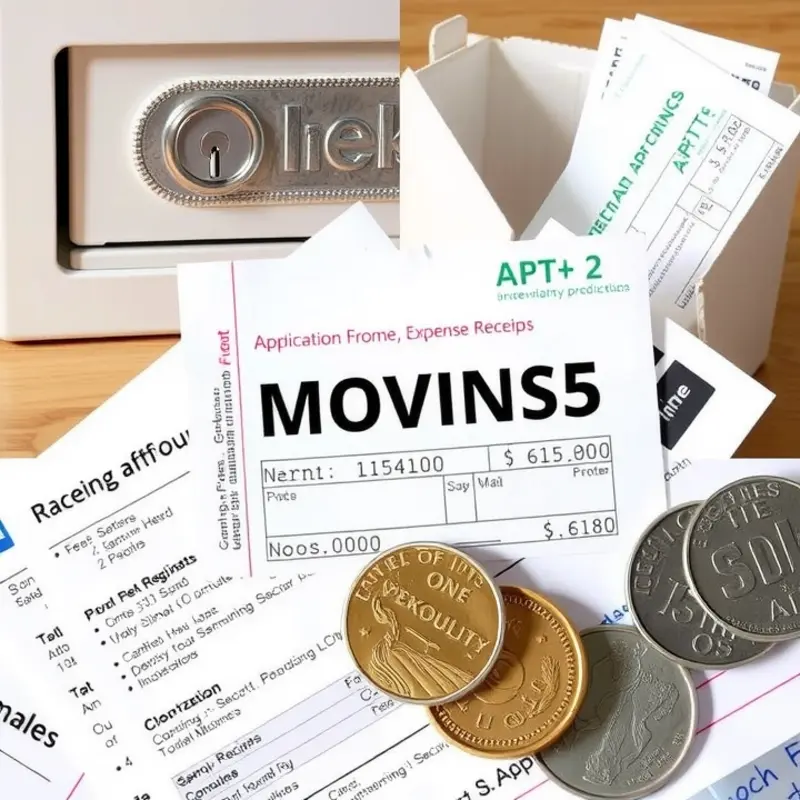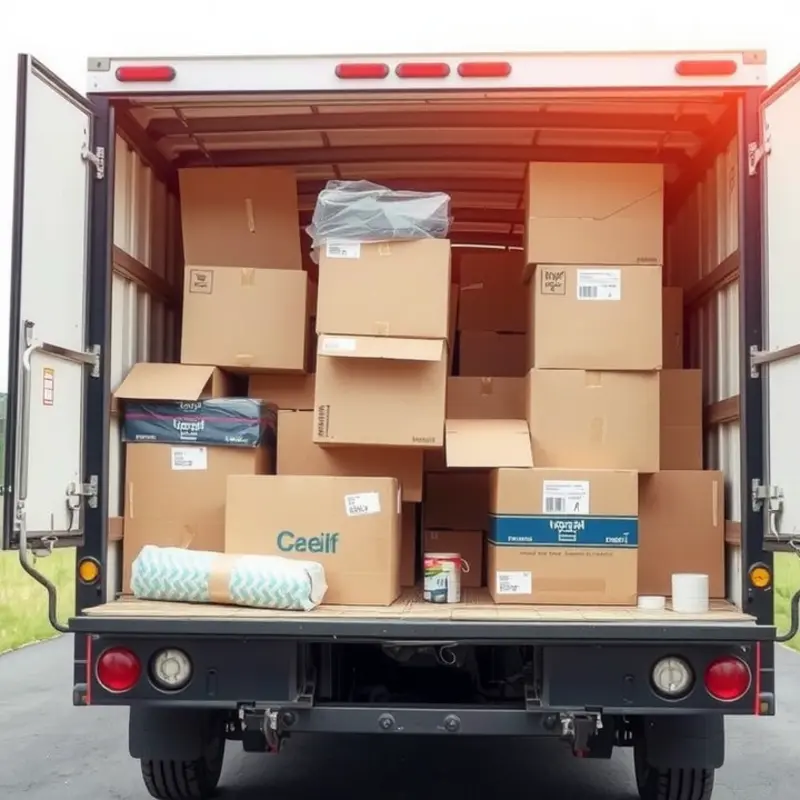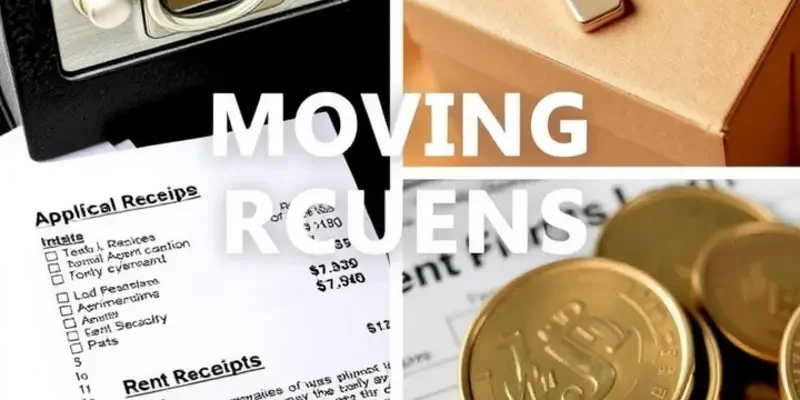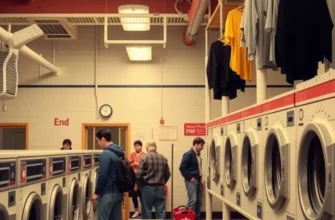Moving out into your first apartment or house can feel like an exhilarating leap into adulthood, complete with dreams of decorating without parental supervision and endless takeout options. But before you start to measure for your new couch, it’s essential to consider not just the sticker price of new pad—but also the hidden costs lurking in dark corners, waiting to jump out at you like an unwelcome jack-in-the-box. Whether you’re a young professional starting your career, a couple finding a place to call your own, or a family expanding into a bigger space, you may be blindsided by expenses that can quickly add up. From essential deposits to surprise fees, let’s navigate this often-overlooked aspect of renting and help you prepare for a smooth transition into your new home.
The Unseen Expenses: Security Deposits and Miscellaneous Fees

Moving can be an exciting adventure, yet it’s often riddled with costs that catch many young renters off guard. Unseen expenses like security deposits and miscellaneous fees can stack up rapidly, sinking any naive hopes of a budget-friendly transition.
Security Deposits
A security deposit is a standard requirement in most rental agreements. Typically, it amounts to one to two months’ rent and serves as a financial guarantee for landlords. This deposit covers any property damage or rental arrears that may occur during your lease. However, reclaiming the full amount isn’t always straightforward. Landlords might deduct funds for cleaning, repainting, or fixing wear and tear beyond standard usage. Familiarize yourself with local security deposit laws to understand your rights as a tenant. This knowledge could prevent landlords from holding back more than is justifiable.
Application Fees and Credit Checks
Aside from security deposits, prospective tenants often encounter application fees. Covering the landlord’s cost to process your application, these fees might also include charges for running a credit check. These fees are usually non-refundable, regardless of whether your application is successful. It’s advisable to budget these into your initial moving costs and keep an eye out for properties that offer reduced or waived application fees, especially during competitive rental seasons.
The Dreaded Miscellaneous Fees
Moving is notorious for miscellaneous charges that seem to pop up from nowhere. Many renters face unexpected fees like administration charges, move-in fees, or documentation processing costs. Some landlords even require tenants to pay for pest control services or to join a communal maintenance plan. These can add up significantly, and spotting them buried in a lease agreement requires a keen eye. To avoid being blindsided, meticulously review all contract details before signing, and don’t hesitate to ask landlords to clarify vague line items.
The journey to your new home involves more than just packing boxes and signing leases. Remembering these often-overlooked costs can help you budget wisely and evade financial strain during your move. By preparing for these common yet hidden costs, you ensure a smooth and less stressful transition to your new residence.
Packing and Transportation: The Cost of Getting There

Moving can be a significant source of stress, particularly when it comes to packing and transportation. These often-overlooked aspects of a move can quickly add unexpected costs to your budget. Preparation and planning can make all the difference in keeping these expenses at bay.
First, consider the supplies you’ll need. Boxes, tape, bubble wrap, and markers are essentials that can quickly add up. Buying new materials can be costly; instead, look for free boxes from local businesses or online communities. Keep an eye out for deals, or borrow supplies from friends and family. Ensure you have more supplies than you anticipate needing—running out in the middle of packing could lead to buying overpriced supplies in haste.
Moving truck rentals are a key component of many moves. Prices can vary widely depending on the size of the truck, distance traveled, and even the day of the week. To save money, aim to book your rental well in advance and keep your schedule flexible. Mid-week moves can cut costs considerably compared to weekend moves when demand is higher. Additionally, consider how much mileage and gas expenses will affect your total.
If you’re moving a considerable distance, hiring professional movers might become necessary. The cost here can be steep, but it can save you time and spare your health. Consider seeking quotes from several moving companies, ensuring each understands your specific needs and volume of items. Be wary of hidden charges such as additional fees for stairs, long walks from the parking area to your door, or insurance coverage. A careful review of contracts can prevent unexpected costs.
While movers handle the heavy lifting, planning ahead remains a cornerstone of a cost-effective move. A detailed inventory can prevent last-minute scrambles and ensure nothing is left behind. Look into storage solutions if you need to stagger your move or downsize (check these handy tips).
Consider consolidating your belongings to reduce the load. Donate, sell, or recycle items you no longer need to lower the volume and cost of moving. It’s a process that not only lessens the moving burden but can also be a cathartic way to declutter your life.
Lastly, don’t forget about potential “settling in” costs associated with your new home. If you’ve got a pet, ensure you plan for their comfort during the transition by preparing their essentials beforehand.
Ultimately, a well-prepared move is about balancing time and cost. By anticipating the unexpected and planning each step, you’ll not only manage your budget more effectively but also ease the overall moving experience, setting the stage for a smooth transition into your new home.
Final words
Transitioning to a new home, while exciting, does come with its fair share of financial surprises—including some sneaky costs that can layer on top of the regular rent. Understanding and budgeting for these hidden expenses like security deposits, application fees, packing materials, and transportation costs can be the key to a smoother, stress-free move. So, whether you’re gearing up for your first apartment or moving into a larger family home, keeping these hidden costs in mind will go a long way in helping you avoid a financial headache and make your new place feel just like home.









